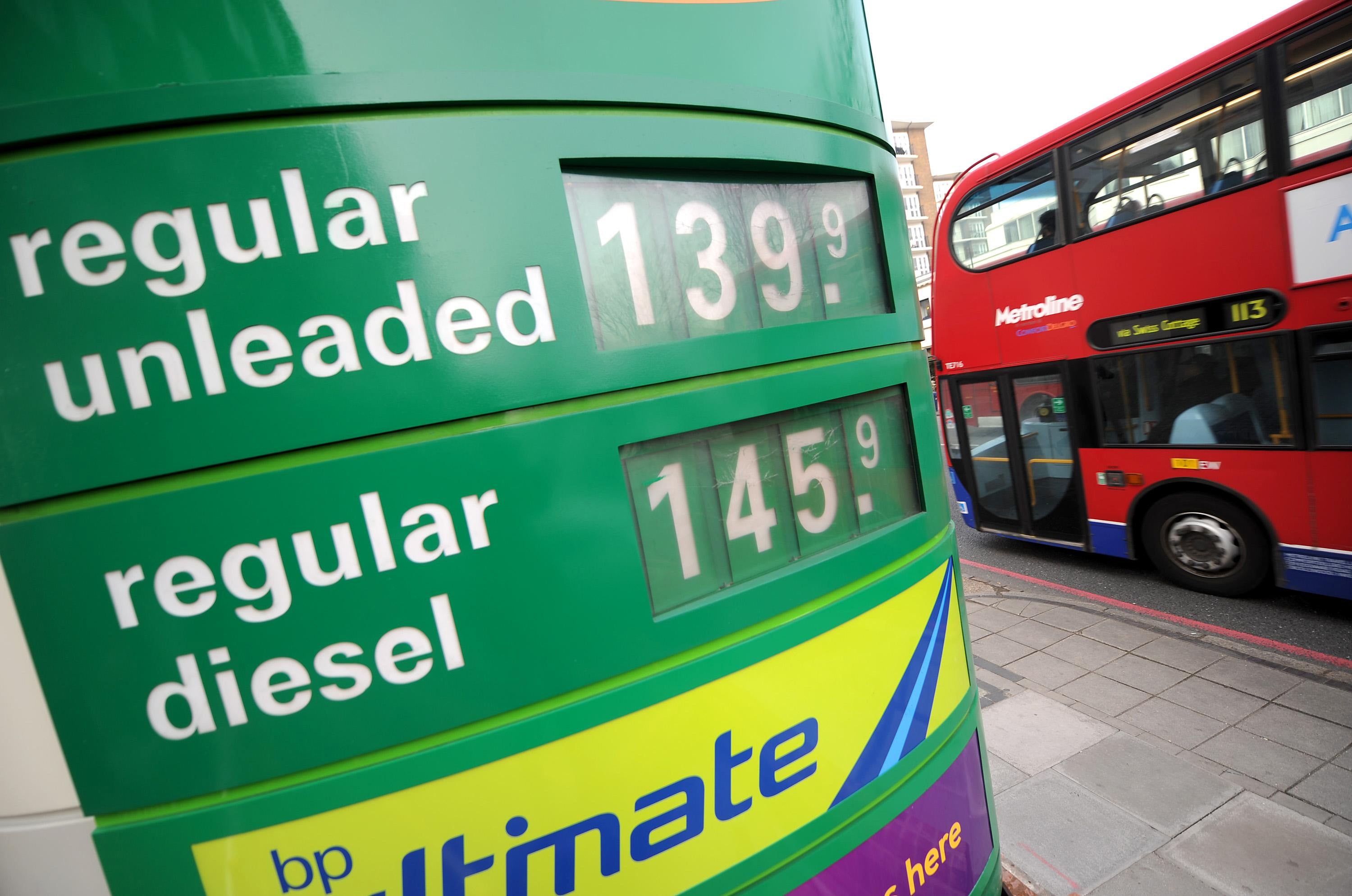BP profits explained and where that money goes
Growing calls for the government to close a ‘loophole’ in its windfall tax on oil and gas companies amid bumper profits

Calls for the government to close a “loophole” in its windfall tax on oil and gas companies have been made by opposition parties after BP said it had made profits of just under $5bn (£4bn) in the first quarter of the year.
The profit is a reduction from last year in the same period between January and March – $6.2bn (£5bn) – but apart from that is the best result BP has reported in at least a decade.
“These enormous profits are the unearned, unexpected windfalls of war,” said Labour shadow energy secretary Ed Miliband.
Here, we take a look at why BP made so much money, how much the company pays already and why some are calling to close a ‘loophole’ in the windfall tax on oil and gas giants.
Why did BP make so much profit?
Oil and gas prices have fallen back since last summer, but are still considerably higher than before the energy crisis, prompted by Russia’s invasion of Ukraine.
The gas that BP was selling for 3.37 dollars per thousand cubic feet early in 2021 was fetching 6.94 dollars in the last three months of 2021. However, the prices tumbled in the summer of 2022, but rebounded in early 2023.
Oil has seen a similarly massive rise, from 36.51 dollars per barrel a little two years ago to 71.63 dollars towards the end of 2021, and has stayed above that level in late 2022 and into this year.
What is BP doing with all its extra profits?
Shareholders are the big winners, with BP announcing it has spent another 1.75 billion dollars (£1.4 billion) on buying up shares. The fewer shares in circulation, the higher the share price is expected to go.
Money was also used to pay BP’s debts.
How much tax does BP pay?
This depends on how you calculate it. Those inclined to be uncharitable to the company could point to its production taxes.
In the UK, companies that need to pay to decommission old oil platforms in the North Sea are able to claim back some of their costs from the Treasury.
That means that in 2020, the latest year with data available, BP received 48 million dollars (£35.4 million) from the Treasury in production taxes.
Critics will also point to corporation tax. To ensure that the money from North Sea oil goes back to the British people, companies have to pay 40 per cent in corporation tax on their operations there – twice the usual rate.
But in 2020, BP paid no corporate tax from its North Sea business, in part because it was investing in the area.
This is not to say that BP paid no tax at all in 2020. It paid 311 million dollars (£229 million) in corporate taxes, property taxes and employer taxes.
If you count the amount that BP collected from others and paid to the Treasury, including excise duties, employee taxes and sales taxes, that adds another 2.2 billion dollars (£1.6 billion).
What has BP said?
Bernard Looney, chief executive officer, said: “This has been a quarter of strong performance and strategic delivery as we continue to focus on safe and reliable operations.
“Momentum continues to build across our integrated energy company strategy, with the start-up of Mad Dog Phase 2, our agreement to acquire TravelCenters of America and progress towards hydrogen and CCS projects in the UK.
“And importantly we continue to deliver for shareholders, through disciplined investment, lowering net debt and growing distributions.”
Why do some say BP is using a ‘loophole’ in the windfall tax?
Labour leader Sir Keir Starmer said the party wanted to use an “effective” windfall tax to freeze council tax so money is passed on to people.
“This is a cost-of-living crisis. It’s about choices. Labour is choosing to use those excess profits, use a proper windfall tax and use that directly to help people with the bills that they’re struggling with,” he told BBC Breakfast.
Sir Keir said the government’s windfall tax has a loophole that allows companies to reduce the amount they pay if they invest in new oil and gas exploration in the UK.
“They’ve put a loophole in for that which means that the amount of money that is yielded from that tax is much reduced from what it could be,” he said.
The government’s energy profits levy charges mean companies are charged 75 per cent on the profits they make in the North Sea.
But for every pound they invest in their UK oil and gas business they can reduce their tax by 91p.
The government says this will encourage investment in the UK and protect the country’s energy security.





